We sat down with one of our Forensic Nurse Examiners to learn more about their role and the difference they make in the lives of SARC patients.
What is a Sexual Assault Referral Centre (SARC)?
A SARC is a specialised medical clinic for children, young people and adults that have been sexually assaulted including rape. We partner with the Police and NHS England to ensure public access to expert trauma-informed care 24 hours a day, every day of the year.
Why did you become a Forensic Nurse Examiner?
Being a Forensic Nurse Examiner (FNE) in a SARC enables me to have a critical role in helping survivors of sexual violence receive healthcare and emotional support. We work unbiasedly and without judgement, and help anyone who needs our care, regardless of when the incident happened.
Mountain Healthcare has a fantastic training team with a vast amount of knowledge and appreciates that new team members bring new skills into the role.
How is your role as an FNE different from other nursing jobs?
The complexities of the criminal justice system that we work within make the usual challenges of the nursing profession just that little bit more unique. The environment at a SARC is inviting and supportive while also being clinical. On a daily basis, I am in contact with professionals across health, social care and other government agencies. A typical shift for me last week looked like this:
1.00am – I began my 8-hour shift at the SARC with my coworker, a Crisis Worker.
12.50am – I received a telephone call for advice from an adult male who had experienced sexual abuse in his childhood. He had not disclosed this to anyone else before and wanted to know where he could turn for help and support. I advised him about local support services and asked if he would like me to share some specific services with him. He agreed and I emailed these to him in the morning so he could self-refer for this support. I established that he was safe and that he was not experiencing an immediate mental health crisis (if he was, I would signpost onto A&E, Samaritans or Mental Health Crisis teams). This call lasted around 35 minutes.
3.40am – The police contacted me regarding a recent rape to schedule a medical forensic examination. Our patients are always seen by the SARC team as soon as possible. After speaking with the police and patient to obtain consent, an appointment was made for 04.45am.
A SARC appointment will usually take anywhere between 3 to 5 hours including breaks so the patient always feels supported.
4.45am – The female patient and police arrived at the SARC on time for the appointment. It is important to establish trust with patients and to give them choices to enable them to feel in control of what happens during their time at the SARC. Sexual assault and rape are forms of control and we ensure we give control back to our patients at every possible opportunity. We are incredibly lucky as nurses to work alongside a team of amazing Crisis Workers who advocate for patients during the entirety of their visit to the centre including physical medical examinations.
5.00am – The Crisis Worker and I took a full medical history of the patient. The police were not present at this time to allow for privacy. A medical examination was then conducted which involved the collection of forensic samples including the use of a camera to record injuries. All exhibits were agreed upon with the patient, and nothing was taken without her full consent. We obtain this evidence to ensure that a full investigation can take place which supports efforts to prosecute offenders through the criminal justice system.
6.30am – Once the examination was complete, we began our detailed, individual aftercare assessment with the patient. This typically includes a full sexual health assessment including HIV risks and pregnancy risks. If medication is needed, we can provide some of this at the SARC.
We then discussed referrals for the patient that included services like safeguarding, GP, sexual health clinics, domestic violence services, counselling services, independent sexual violence advisors, drug and alcohol services and mental health services. Our recommended support services are as individualised as each patient needs. The patient is fully aware of the referrals we make, and we share information with them about every referral we are going to make and why. This reinforces the control we give back to patients.
7.30am – The patient left the SARC with the police and both the Crisis Worker and I had a coffee and debrief about the case. I made all the relevant referrals for the patient and the Crisis Worker ensured the examination room was forensically cleaned for the next patient.
9.00am – My shift ended and I left the SARC.
What advice would you give to someone looking to become an FNE?
I trained as a nurse to work in the field of sexual assault forensics however much of our team started out in other nursing roles and then transition to Forensic Healthcare when they learned about the significant difference we can make in the lives of our patients. The pay and flexibility in rota shifts are also unique benefits of working for Mountain Healthcare.
Due to the nature of our work, this role is not for everyone but if you are looking for a challenge and to work for a forward-thinking company that puts its patient first, please get in touch with our friendly Recruitment Team about available positions in your area.
Recruitment Team
Email: jobs@mountainhealthcare.co.uk
Phone: 0330 223 0099
